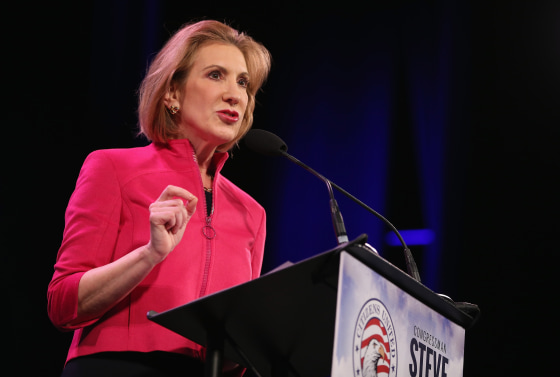The former Hewlett Packard CEO and former Republican candidate for Senate in California languished in the polls with the bottom feeders of the huge Republican field since her campaign announcement this spring. However, her impressive job at last week’s “Kids Table Debate” of lower tier candidates has pushed her into the spotlight (and likely a position at the prime time debate on CNN in September.)
With greater visibility comes greater scrutiny and if Fiorina seeks to become a presidential contender as opposed to just a high profile candidate she’ll need to start answering some tough questions.
NBCBLK is putting together a series of articles posing practical questions towards candidates running for office: Jeb Bush, Chris Christie, Bernie Sanders, Scott Walker and John Kasich for starters.
We don't presume an "African American" political agenda, (something that may or may not exist for that matter). Instead we look at policy and home turf issues, and evaluate how those factors would specifically impact African American voters. In 2016 the African American vote is not a lock for the Democrats or the Republicans so the questions we pose are the kinds that any political leader should be prepared to answer if they want to win.
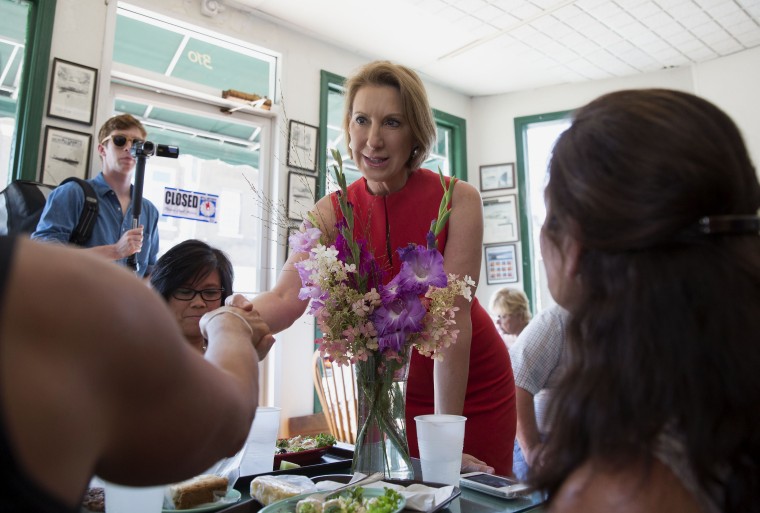
Carly Fiorina is a curious case for African American voters if not Americans in general because her resume is incredibly debatable. Fiorina worked her way up from a secretary to becoming the first woman CEO of a fortune 20 company when she took over Hewlett Packard in 1999.
Fiorina in her book, "Rising to Challenge: My Leadership Journey", ranks her tenure a great success; she improved profits and navigated a successful merger with Compaq Computers. However, many tech business observers claim that she almost ruined Hewlett Packard, cost the company almost 50 percent of its stock value, laid off over 28,000 employees and was a horrible manager.
Given that Fiorina was fired by the board in 2005, and was accused to being a closet Democrat (on the Red State Blog no less) by Ariana Packard, granddaughter of HP’s founder, it’s difficult to objectively assess whether the biggest section of her resume is a plus or a minus.
In subsequent years Fiorina worked as a surrogate for John McCain in 2008, ran unsuccessfully for the Senate against Barbara Boxer in 2010 and has been involved in several philanthropic organizations around the world.
Now that Fiorina is making a more concerted effort to win the GOP nomination it’s important that she have both policies and positions that could appeal to African American voters, a constituency that the GOP can no longer simply write off in general elections. The question is, what should black voters ask of her?
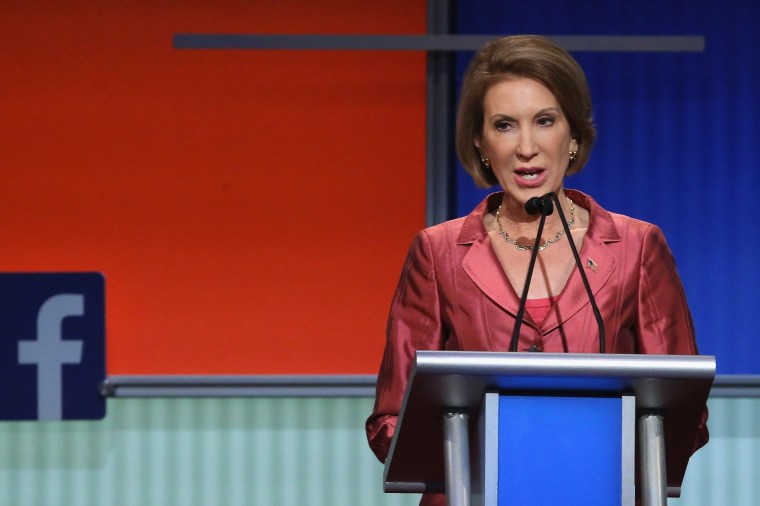
1. Where Do you Stand on Voter Identification Laws?
Carly Fiorina has a confusing background when it comes to voting in her home state of California and thus her positions on voting rights should be one of the main questions posed to her by African American voters. During her unsuccessful senate run against Barbara Boxer (D-CA) in 2010 it was revealed that Fiorina didn’t vote too much. According to a recent story from the Los Angeles Times :
“….she had failed to cast a ballot in 75% of the California elections for which she was an eligible voter. She missed presidential primaries in 2000 and 2004, and the primary and general elections in 2006, including a Senate reelection run by Democrat Dianne Feinstein. She skipped the primary and general elections in 2002, a gubernatorial election year, as well as the historic recall vote that brought Arnold Schwarzenegger to the governor's seat.”
At the time Fiorina explained that her lack of voting was due to feeling disconnected from the process, and Washington politics in general. However, according to the LA Times, during her time at HP her company spent $4.7 million to lobby Congress, spent almost $400,000 on candidates, and Fiorina and her husband personally donated over $100,000 to Republican (and some Democratic) candidates from about 2000 onward. So clearly, she was involved in politics, just at a level that is beyond the means of most average Americans.
None of this makes Carly Fiorina a bad candidate, or disqualifies her from running. Tons of Americans don’t bother to vote for various reasons. However it does cause one to question how strong an advocate for voting rights she will be if she were to become president. When it is clear that many Voter ID laws are passed with the intent of suppressing the African American vote, African Americans should ask Fiorina if she is willing to fight for a right that she only recently began to exercise herself.
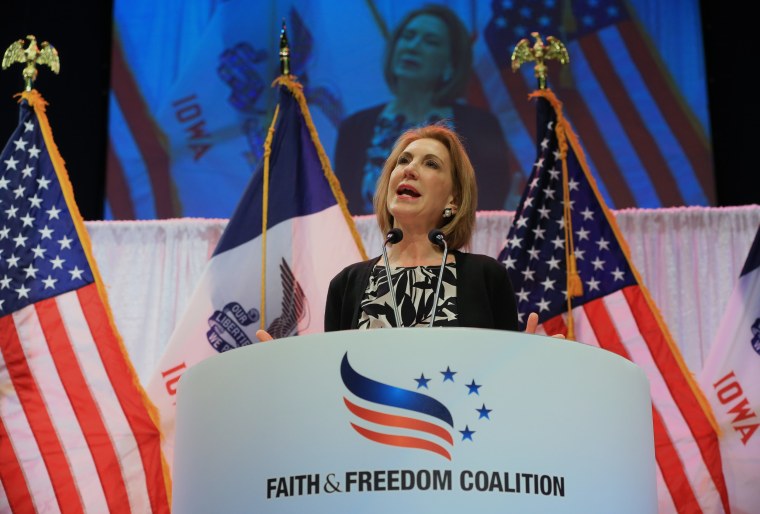
2. What will you do to improve Workplace Fairness?
Carly Fiorina has made it clear in every speech, book and conference she attends that improving the lot and opportunities for women in the workplace has been a goal of hers. She often talks about how hostile and sexist the working environment at Hewlett Packard was when she started working there--at one point she was dared to attend an executive business meeting which was held at a strip club--and what she did to improve the environment to help women achieve and advance.
During her time at HP (1999-2005) the number of women in management grew from 49 percent to 53 percent, which is an impressive turnaround.
However, data on racial diversity at Hewlett Packard, (and most other tech companies) is hard to come by, and what is released isn’t promising. HP along with other tech companies have consistently refused to hand over hiring and retention data to the Department of Labor and their published information doesn’t make it clear what positions minorities have been hired in.
A study by the San Jose Mercury News showed that the number of African Americans employed in Silicon valley dropped 16 percent from 2000 to 2008 and the number of African American managers at HP in particular dropped from a paltry 5 percent to only 4 percent during Fiorina’s time as CEO.
In most cases many companies in the technology industry continue to freeze out or simply ignore applicants that aren’t white, male, Asian or a combination of both. Further, Fiorina has come out strongly against most policies to address workplace inequality, including the Lilly Ledbetter Fairness in pay act for women. She is against a federal minimum wage and against federally mandated maternity leave. So while she clearly believes in workplace diversity she seems adamantly against any sort of federal or government oversight to achieve it.
African American voters should therefore ask Fiorina what she would do as president to diversify and open up job opportunities for African Americans, especially in fields where institutional discrimination and inertia have stymied opportunity.
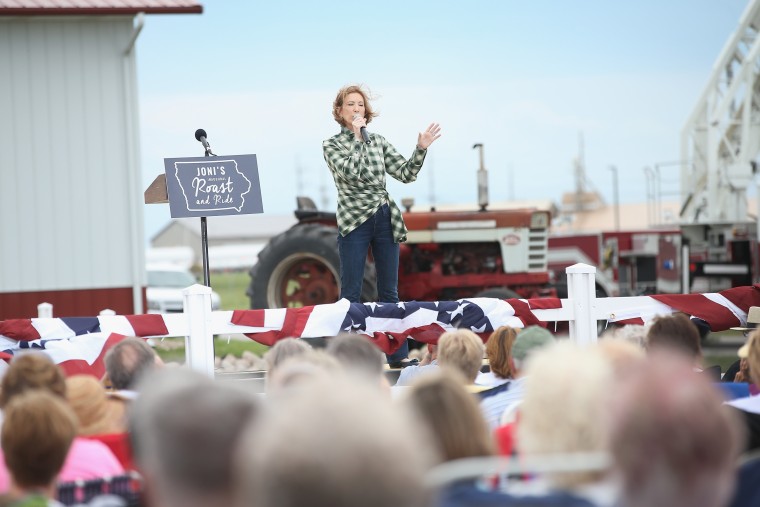
3. Do #BlackLivesMatter or “All Lives Matter” ?
This was the question posted to Fiorina on the “Kelly File” on Fox News earlier this week and the surging candidate’s comments were telling:
“First of all, of course all lives matter,” Fiorina responded. “Secondly, black lives have been diminished under Democratic policies. That’s just true.”“We also know, by the way, that the abortion industry targets African-American communities.”
Let’s put aside for a moment that the question posed Megyn Kelly is inherently disingenuous (the idea that #BlackLivesMatter somehow diminishes the importance of other deaths is just a red herring by internet trolls and some conservatives). Fiorina’s responses allow for some interesting questions from potential African American voters.
Carly Fiorina has espoused little or no policies that specifically address the needs, concerns or interests of African American voters. She’s offered no plan about police or criminal justice reform, makes no specific mention of African Americans at all in her most recent book, and has little or no record on issues pertaining to African Americans during her time at Hewlett Packard.
If she plans on being a national candidate she should have some specific policies that address the concerns of the black community above and beyond “a rising tide lifts all boats” rhetoric. African American voters should ask Carly Fiorina what policies she actually has that will improve black lives, business and health.
